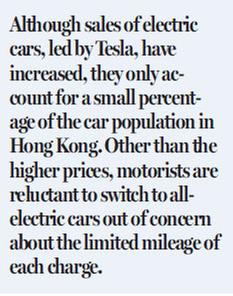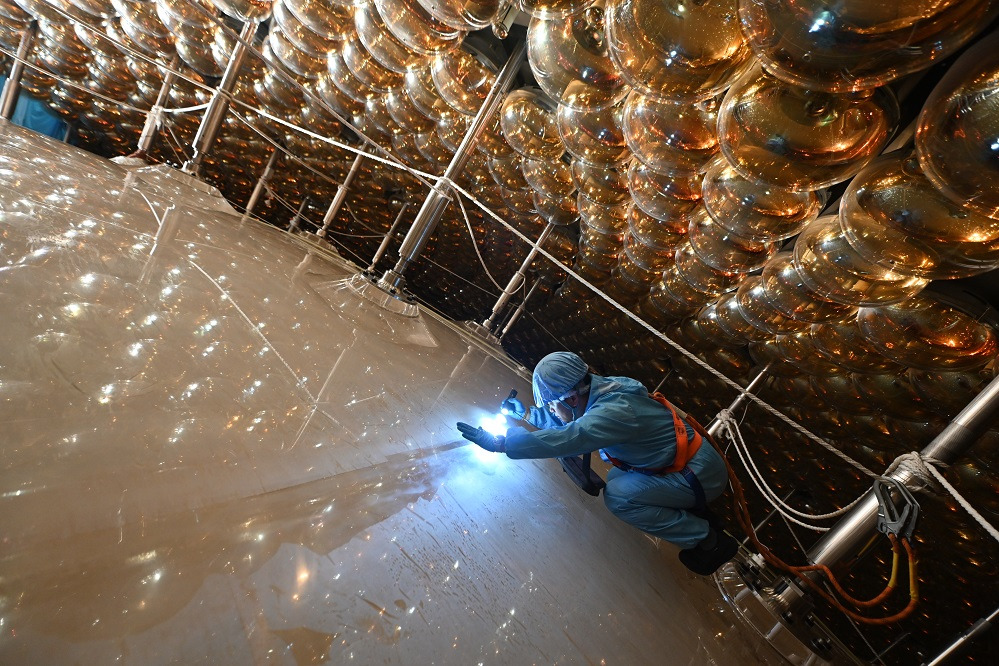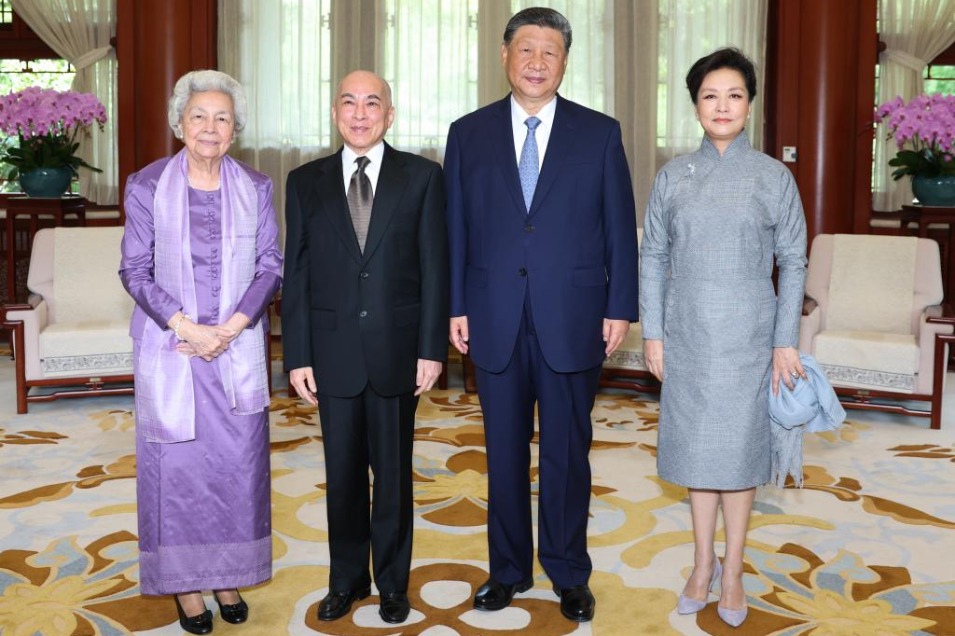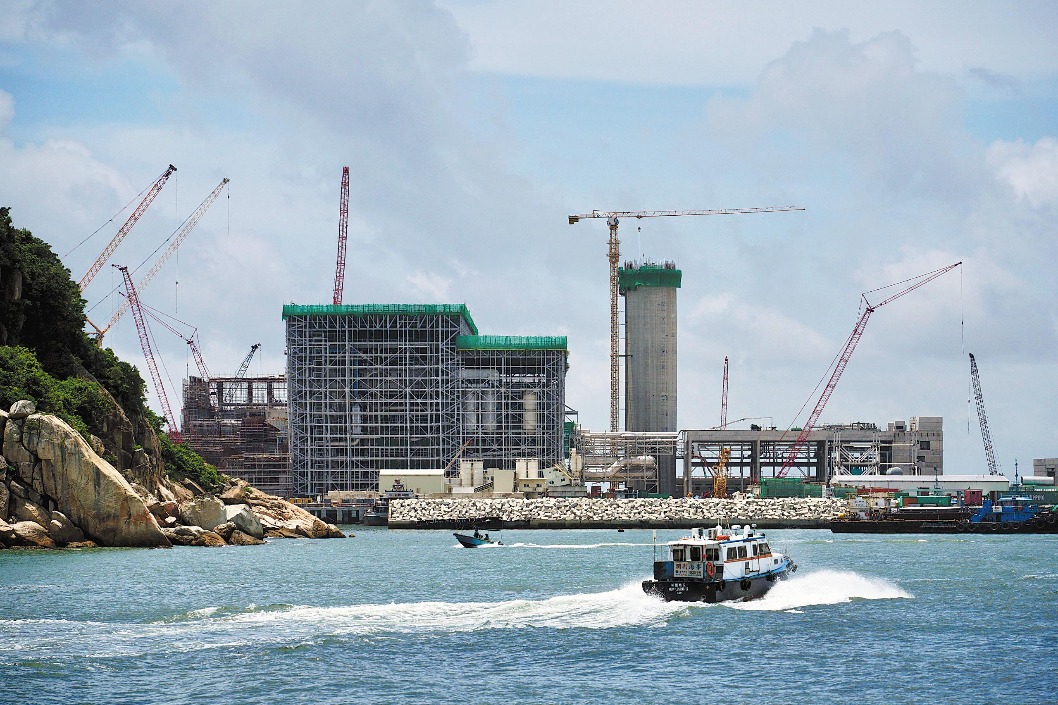Electric vehicles solution to HK's air pollution problem

Peter Liang urges the government to follow some foreign countries' example and gives a cut-off date on fossil fuels
While Hong Kong drags its feet in combating worsening air pollution, the Chinese mainland and other major economies such as France, the United Kingdom and India have set ambitious goals to phase out gasoline and diesel cars.
The British government has said that by 2040 it would ban sales of new cars powered by fossil fuel as part of the effort to clean up the air in cities. United Kingdom Environment Secretary Michael Gove told the BBC that the only option was to embrace new technology.
France has gone one step further by banning even hybrid cars that have supplementary gasoline engines. India, meanwhile, will insist all new cars are electric by 2030, a whole decade ahead of Britain and France.

The Chinese mainland has already become a major producer of electric cars for both the domestic market and export. A Hong Kong bus firm is conducting a trial run on electric buses made by a mainland company on some routes.
In fact, governments in many developed economies are actively promoting the use of electric cars with tax and other incentives. Local authorities in major cities are investing heavily in setting up electric charging stations to minimize owners' concerns about the limited range of their electric vehicles.
The Hong Kong government used to tax electric cars at a much lower rate than conventional ones. But it abruptly hiked the tax on electric cars in its previous year's budget as part of its efforts to cut traffic congestion by reducing the number of vehicles on the street.
Since then, traffic has continued to worsen, not improve. Environmental officials have insisted the street-side air quality was improving. But published data show air pollution on most days has remained at levels that pose a threat to public health.
It's such a shame. As a city by the sea, Hong Kong should be much less susceptible to air pollution than most inland cities. What's more, Hong Kong has no manufacturing industries that would foul its air.
The source of air pollution in Hong Kong is readily detectable. It's from cars that clog the streets while belching harmful pollutants as they crawl through traffic.
To be fair, the government has made great efforts in trying to discourage car ownership. But motorists have remained unfazed by high taxes and the rising cost of keeping cars in Hong Kong, where a parking space can cost as much as a small house in some other cities.
With a highly efficient and relatively affordable public transport system, you'd think people would happily abandon cars in droves. That, unfortunately, is not the case in Hong Kong where car ownership is still considered a status symbol. That explains why people here love their cars big and powerful although streets are mostly narrow and traffic is always slow.
As it is, the air pollution problem in Hong Kong will only become worse. Nobody has done a study to gauge the economic cost of air pollution. But it is widely believed the problem has greatly undermined Hong Kong's attractiveness to professional talents in banking and technology, especially those with young children, who are most vulnerable to airborne pollutants.
To reverse this trend, the government has little choice but to follow the examples set by some other developed economies by setting a target to eliminate the source of air pollution. Without a government initiative, motorists are not going to go electric voluntarily.
Although sales of electric cars, led by Tesla, have increased, they only account for a small percentage of the car population in Hong Kong. Other than the higher prices, motorists are reluctant to switch to all-electric cars out of concern about the limited mileage of each charge.
That should not be a big concern in Hong Kong, where the average distance of travel is much shorter than in other places. The electricity companies are offering a service of installing chargers - at a cost, of course - for electric car owners in their garages.
But the only effective way to convince motorists to make the switch to electric is to make it their only choice sometime in future. Only that would make them take a hard look at electric cars now.
The author is a veteran current affairs commentator.
(HK Edition 08/07/2017 page9)
Today's Top News
- A misjudgment of situation in the first place, destabilizing AUKUS deal may bite the dust: China Daily editorial
- Welcome would be welcomed if sincere: China Daily editorial
- Xi and his wife meet Cambodian King, Queen Mother
- Xi meets Russian State Duma chairman
- Parade a tribute to Chinese people's sacrifices in WWII
- SCO will strongly uphold multilateralism






























